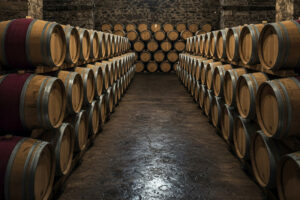This is the price of success in a certain sense. The 45 million euros that Bollinger has decided to allocate to purchase vineyards over the next decade is to make sure that more than 60% of its production output is from its own grapes, as Gilles Descôtes, chef de cave of the maison told the UK magazine "The Drinks Business" (www.thedrinksbusiness.com).
“We have bought about three hectares a year starting two years ago, and we are trying to buy more, but it's not easy”, Descôtes said, who has been chef de cave of the maison since 2013 after previously being technical director. He also pointed out that Bollinger hopes to increase its hectares from the current 170 to 174 by the end of this year. By 2026, then, if the Maison sticks to its schedule, the total would be over 200 hectares providing raw material to the Champagne brand.
“We want”, said Descôtes, more than 60% of the grapes we use to come from our vineyards”. This program is not impossible as in the territory of the maison (2016 was a year of great growth and was boosted by the latest film in the James Bond saga, "Specter") Côte des Blancs, one hectare of land costs nearly two million euros. And paradoxically, this price is tempting young landowners in the area, explained Descôtes.
“Imagine being a small farmer in Champagne, and inheriting a hectare to cultivate grapes. Selling the grapes would yield about 60-70.000 euros a year, but there are other costs and much work to be done. But, if you sell the hectare for two million euros, and just put it in the bank, the interest will amount to about the same each year without working. Quite a few young producers in Champagne are doing just that”.
Lastly, on the possibility of expanding Bollinger in England, in the wake of what Taittinger did with Domain Evremond in Kent, Descotes admitted, “I would love to try something like that”, but that decision is not his. Also, “there is potential, but there are three things to consider. The first is global warming. At the moment, it is a little too north to be regular, which makes it quite dangerous. The other problem is finding quality places and terroirs, but I'm sure there are, because they have the same geology as in Champagne [...] And the last is the choices of British producers. I'm not sure if the thing to do is copy Champagne and compete only with Champagne. Perhaps it would be more interesting to find an English style for sparkling wines, rather than saying that the same varieties of Champagne are used”.
Copyright © 2000/2026
Contatti: info@winenews.it
Seguici anche su Twitter: @WineNewsIt
Seguici anche su Facebook: @winenewsit
Questo articolo è tratto dall'archivio di WineNews - Tutti i diritti riservati - Copyright © 2000/2026






































































































































































































